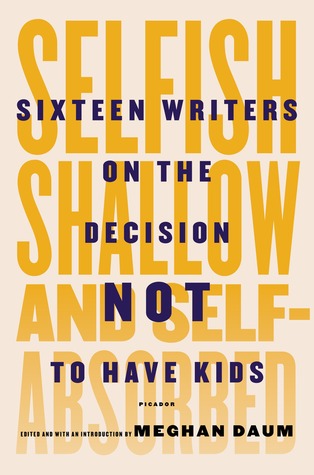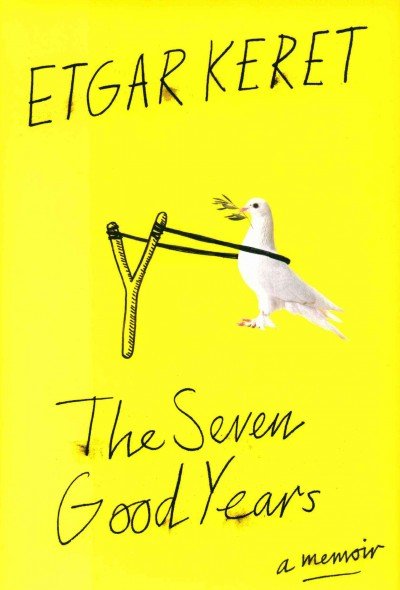Six Months of Motherhood
/Six months in, and I still feel like an imposter when I say I'm a mother. "Mommy" feels slightly easier to get behind, as it's a term of endearment rather than an identity. "Mom" feels like it belongs to the voice of an older kid, not to the babbling of my little baby. "Mama" feels too earthy to me. "Mother" feels like an enormous responsibility, one that should require some kind of extensive exam, or at the very least, some kind of Saturday afternoon class that provides a certificate of attendance as proof of readiness for bearing and raising a child.
Impracticalities--and the impossibility of preparing to embark on task so enormous as bringing a person into the world--aside, the word "motherhood" still feels foreign. I envisioned being a mother as the commencement of a new relationship between me and a tiny person. As it turns out, babies, even my very social baby, can engage in relationships in only the most limited of ways.
I very much felt like my baby's mother when my obstetrician cut her out of me during an emergency c-section and hoisted her into the air and over the curtain that (ever so thankfully) blocked my view of my torso so that I could see her, dripping with blood and amniotic fluid, and coated in vernix, for the very first time. (I considered avoiding all mentions of bodily matter in this post, but decided in the end that the gory process of creating life must not be overlooked.) Since then, I most felt a connection to her when I was able to make her giggle for the very first time several weeks ago. Her staccato, cackle-like laugh signaled to me that inside this little helpless being is someone who will blossom into a real person, someone who will someday need me for more than mere survival. I wait in eager anticipation for her personality to emerge even more and for our emotional connection to blossom. As she learns who I am and we develop our rapport, and as I become not just the provider of sustenance for her, I imagine I will get to be her mother in an even fuller sense of the word.
In our six months together, I have enjoyed cuddling with her and feeling the warmth and weight of her little body on my chest. I love to watch her try new foods and cackle with delight, and then seconds later, watch as her face sours in surprise as the flavor reaches her tongue. I am relieved and heartened when I can comfort her with milk from the source. I like to wear her in my baby carrier and feel her close to me.
I was aware that I would often be deprived of sleep and utterly exhausted; that has proven to be the case. (But let it be known that it's better to be tired than nauseated!) I was not, however, adequately prepared for the task of feeding the baby. Prior to her arrival, I focused on procuring the appropriate baby paraphernalia and readying myself for the birth. Plenty of people helped prepare me for the actual birth, but I had no idea how relentless the task of feeding a baby was. Six months in, I can conclude: There is no easy way to feed a baby.
Breastfeeding propaganda abounds, yet actual evidence doesn't support all the claims that its advocates state with authority. Breastfeeding is quite difficult, and certainly not intuitive for the mother or the baby. For a mother recovering from labor, surgery, or both (as was the case for me), and a newborn baby who can barely see and has only a tiny mouth with little strength to suck, it is a challenging process. It's a wonder to me that our species survived with breastfeeding as the sole mechanism for keeping infants alive for thousands of years.
It eventually worked for us, albeit with the assistance of six lactation consultants. For several months, I spent four or five hours a day feeding Rebekah. (I highly recommend The Good Wife and Madam Secretary as breastfeeding television; I can attest that the female protagonists of both are oddly empowering to watch while sitting half-dressed in pajamas all day.) Now that Rebekah can see well, and her mouth is larger, the process is much quicker. But it is not free! The milk, to be clear, is free. But pumping with a rented hospital-grade pump is not free. (To maintain a milk supply if you are not with your baby every 2.5 hours, you have to pump.) Insurance companies are, for the time being, required to provide a pump under the ACA. The pump I received from my insurance company is both inefficient and loud. Nursing tops and bras are not free, and unless you want to disrobe every 2.5 hours, these are essential. If you want to leave home, nursing apparel--shirts with flaps or buttons--is also a necessity. Other purchases include: milk storage bags, a bag for the pump, new parts for the pump (periodically), and a hands-free bra (if you want to be able to use your hands while pumping), among other things. I mention all these obstacles not to complain, but to make the point that breastfeeding is not free, easy, or natural. It has its advantages--not waiting when the baby is wailing hungrily, for example--but it is not without its challenges.
Also, if you want to go out in public with the baby, you have to feed the baby in public. It sounds silly to say that, but women still face so much grief for feeding their babies. This level of discomfort from many people puts mothers in a tricky and unfair situation: either you stay at home and lose your mind, or you go out in public, feed your baby, and risk making other people feel awkward. At first I was very modest and would disappear into another room if I was at home or hide in a bathroom if I was at a restaurant. Now I feed her when I need to and am mostly able to not feel bashful.
We endured about 2 months of her refusing a bottle. This meant that I could not be away from her for more than 2.5 hours at a time. We tried numerous bottles, sought advice from experts, and eventually, after many tears from all involved parties, she took a bottle. I learned that I was right: It was not a matter of willpower, or letting her get hungry enough, or not giving her the right bottle. She had some tongue and lip tie issues that made it difficult for her to drink. I now have the option of moving her entirely to bottles, but I'm hesitant to give up the one thing that I know will almost always calm her down. There is also less cleaning involved than if we were only feeding her with bottles, and at this point, less cleaning equals more sanity.
While I read a lot of books about pregnancy and birth, and one or two about breastfeeding, I read none about sleep. I anticipated (likely, incorrectly) that each author would have a pet theory that might work for some people but wouldn't be worth reading an entire book about. I knew that I would not be able to withstand even one night of "cry-it-out," the sleeping method in which you leave your baby in a room to cry until it falls asleep. That description is probably unfair because I have not read much about it. Nevertheless, I know that I would not be able to listen to her scream without intervening. When her lower lip quivers, and tears well and then pour down her face from the corners of her eyes, I feel a startlingly strong impulse to swoop in and save her.
The first two months or so were easier than the last several, in that she now requires nearly constant entertainment and is not as portable as she once was. She grabs whatever is in reach and has already dumped one Chipotle burrito bowl onto the floor; not to worry, Schroeder happily cleaned it up. I was able to do things during those first few months when she slept all the time. I could make dinner while wearing her, which I did precisely once. I could write a few emails with her in the carrier, which worked several times, for about 15 minutes each time. I am behind on many things I have been meaning to do for many months now, including what I feel most guilty about, which is properly thanking everyone who gave us gifts, for which we are very thankful!
Six months ago today this little one joined us and changed everything forever. My primary responsibility is now to her--her health, safety, education, security, and well-being. We remain physically, intimately connected. It is an immense privilege to be her mother, yet motherhood, so it seems, is not without the emotional torment that comes with attempting to be everything she deserves in a mother.























